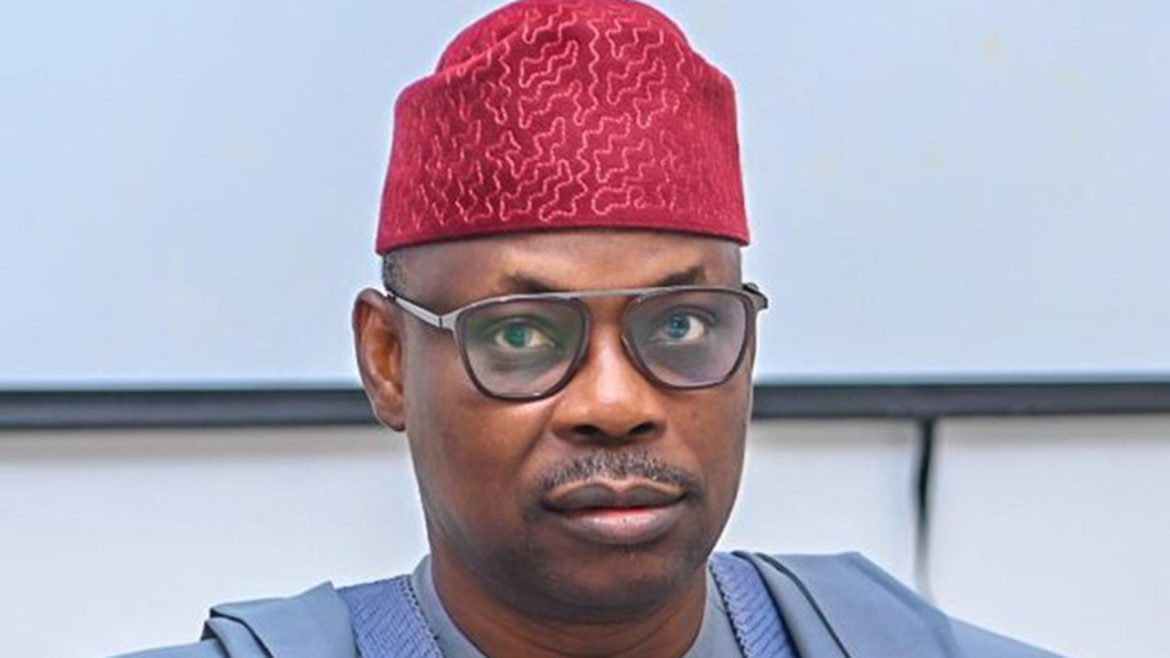By Iyemah David
The Federal Government of Nigeria has reiterated its commitment to strengthening telemedicine and digital health innovation as central strategies toward achieving Universal Health Coverage (UHC) and equitable healthcare access across Nigeria.
The reaffirmation came Thursday in Abuja at the Nigeria Telehealth Conference 2025, themed “Scaling Telehealth for Universal Health Coverage in Nigeria: Pathway to Sustainability,” with key stakeholders highlighting progress and future strategies.
Minister of State for Health and Social Welfare, Dr Iziaq Salako, said the event marked a milestone in Nigeria’s quest to leverage technology for improved national health outcomes and service delivery.
He reaffirmed that the Federal Ministry of Health remained dedicated to reducing physical and financial barriers while expanding access to quality healthcare and saving lives in underserved areas nationwide.
“Technology is a catalyst for transforming our health system. Telemedicine bridges workforce gaps and connects rural or under-resourced communities to qualified doctors,” he said.
Dr Salako said President Bola Tinubu’s Renewed Hope Agenda aimed to ensure equitable, accessible, and affordable healthcare, leaving no Nigerian behind in the nation’s health transformation journey.
He explained that the Nigerian Health Sector Renewal Investment Initiative was established to modernise the health system, with the Nigeria Digital in Health Initiative serving as a major implementation pillar.
“This initiative champions a unified and secure health data architecture that supports innovation and better decision-making across the healthcare ecosystem,” the minister said.
He added that the conference provided a national platform for showcasing innovative digital health solutions in areas like e-prescription, immunisation tracking, referrals, and health insurance claims management systems.
“Interoperability is not just a technical concept; it ensures no data, no patient, and no community is left behind in Nigeria’s digital health revolution,” Salako emphasised.
He acknowledged challenges such as infrastructure deficits, limited digital literacy, data privacy concerns, and regulatory gaps but assured ongoing collaboration with development partners and the private sector.
According to him, the ministry is finalising guidelines and governance frameworks to strengthen quality assurance, security, and accountability within Nigeria’s telemedicine and broader digital health ecosystem.
Dr Salako said deliberations from the conference would inform the forthcoming National Telehealth Sustainability Framework, expected to be presented at the National Council on Health later in November.
“The framework will serve as a blueprint for integrating telemedicine into Nigeria’s health system, addressing standards, financing, digital infrastructure, and workforce readiness nationwide,” he explained.
Director-General of the Nigeria Centre for Disease Control and Prevention (NCDC), Dr Jide Idris, commended organisers for spotlighting the role of technology in improving national health security capacity.
“Nigeria continually manages multiple outbreaks. Telemedicine bridges access gaps and supports real-time medical response in spite of our limited health workforce,” he said.
Dr Idris added that outcomes from the conference would guide future investments in health security, surveillance systems, and integrated digital healthcare platforms across Nigeria.
The conference convened key stakeholders from government, private sector, and development partners to map telehealth strategies for achieving UHC by 2030.
In her goodwill remarks, Dr Dolapo Fasawe, Mandate Secretary for Health Services and Environment, FCT, described the conference as a milestone in advancing sustainable healthcare delivery in the territory.
She said that the FCT had commenced telemedicine operations at primary health centres, with the first telemedicine booth inaugurated at Dutse Makaranta Primary Health Centre (PHC) through a partnership with MobiHealth International.
Dr Fasawe added that remote consultations had linked patients to cardiologists and paediatricians while enabling pregnant women under the FCT health insurance scheme to access free and timely delivery services.
She said the FCT achieved a remarkable rise in skilled birth attendance, increasing from 25 per cent to 102 per cent, through improved service delivery, monitoring, and accountability measures.




